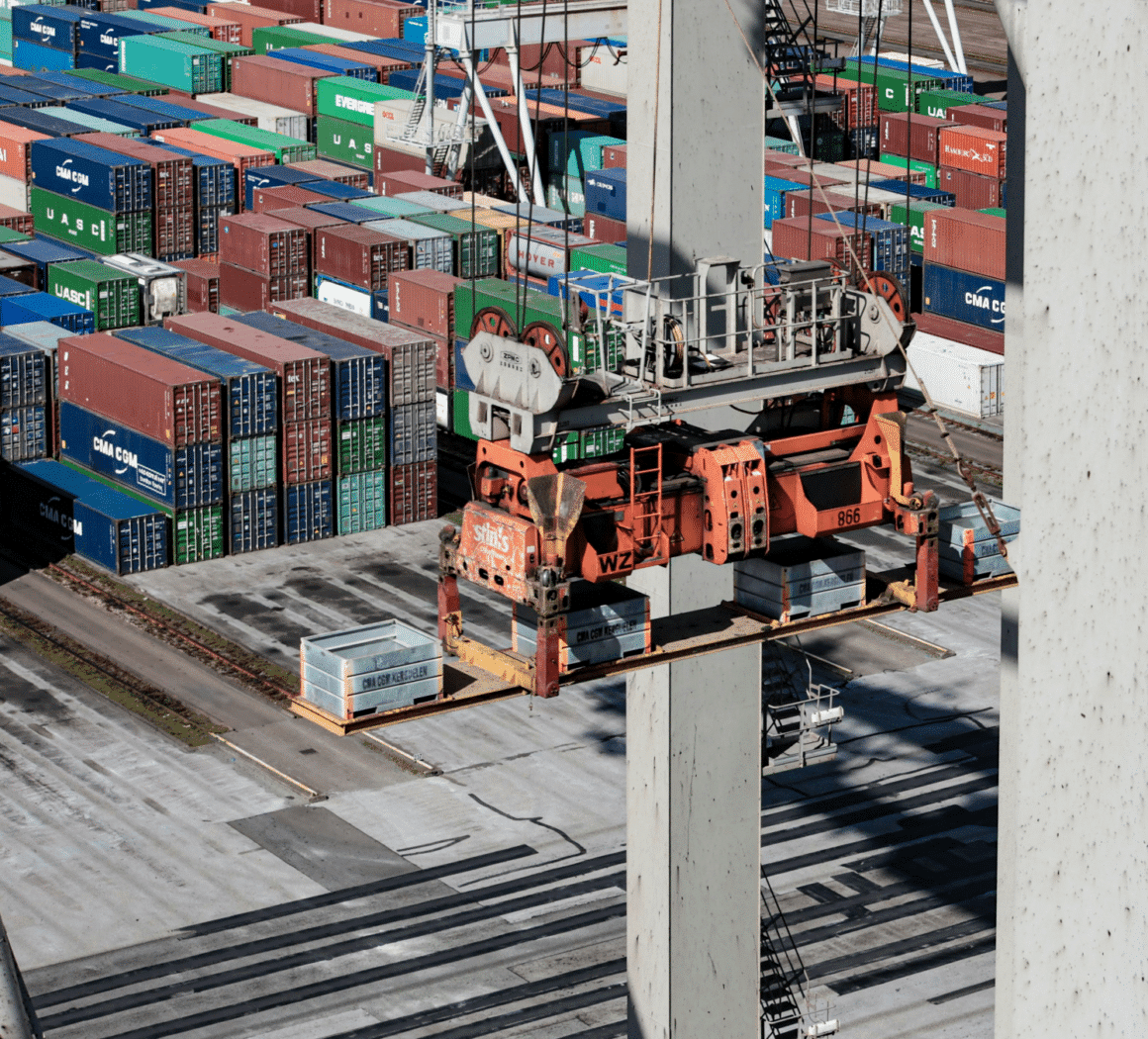By: Sarah Johnson
In the fast-paced space of modern commerce, global supply chains keep industries thriving. These complex networks enable the efficient flow of goods across borders, linking manufacturers, suppliers, and consumers worldwide.
This interconnectedness also renders supply chains vulnerable to a myriad of challenges. From natural disasters to geopolitical tensions, disruptions can ripple through these complex systems, impacting businesses on a global scale.
Daniel Roth of North Coast Container delves into the core challenges faced by global supply chains, offering valuable insights and actionable lessons for industry stakeholders. By examining real-world examples and best practices, we aim to equip businesses with the knowledge needed to navigate these challenges successfully.
Understanding the Complexity of Global Supply Chains
Global supply chains are intricate ecosystems that involve a multitude of stakeholders, spanning vast geographical distances. These networks are characterized by interdependent processes where the actions of one entity can have far-reaching effects on others.
“The complexity arises not just from the sheer number of participants but also from the myriad interactions and dependencies that exist within these chains,” says Daniel Roth. “Technology plays a pivotal role in navigating this complexity by providing crucial tools for enhanced visibility and efficiency.”
From advanced analytics to real-time tracking systems, modern technologies offer unprecedented insights into every stage of the supply chain. This visibility enables stakeholders to make informed decisions, optimize routes, and minimize disruptions.
The forces of globalization and shifting market dynamics further amplify the intricacies of global supply chains. Rapid changes in consumer preferences, geopolitical shifts, and trade policies can create ripple effects throughout these interconnected networks. Understanding and adapting to these dynamics is essential for businesses aiming to thrive in the global marketplace.
Mitigating Risks and Building Resilience
Global supply chains are susceptible to a range of risks that can disrupt operations and threaten business continuity. Geopolitical instability, such as trade disputes and political conflicts, can lead to sudden changes in regulations or tariffs, impacting the flow of goods.
Natural disasters, from hurricanes to earthquakes, pose physical threats to infrastructure and transportation routes. Additionally, the rise of cyberattacks presents a growing concern, with the potential to compromise sensitive data and disrupt operations.
Notes Daniel Roth, “To mitigate these risks and build resilience, supply chain stakeholders must adopt proactive strategies.”
Diversification of suppliers is key, spreading dependencies across multiple sources to reduce vulnerability to disruptions in any one region. Robust contingency planning involves developing alternate routes and suppliers, as well as creating response protocols for various scenarios.
Investing in technology, including AI-driven risk monitoring and blockchain for secure transactions, can bolster the ability to foresee and react swiftly to potential threats. By implementing these strategies, businesses can fortify their supply chains against unforeseen events, ensuring a more reliable and agile operation in the face of an ever-evolving global landscape.

Embracing Sustainability and Ethical Practices
In the modern era, the importance of sustainability and ethical considerations in global supply chains cannot be overstated. As environmental concerns grow and consumers become increasingly conscious of the origins of the products they purchase, businesses are under pressure to adopt sustainable practices throughout their supply networks.
Efforts to reduce carbon footprints are at the forefront of sustainable supply chain management. This involves optimizing transportation routes, adopting eco-friendly packaging, and embracing renewable energy sources. Promoting fair labor practices and ensuring the ethical treatment of workers across the supply chain is crucial.
“Companies are expected to uphold standards that safeguard human rights, fair wages, and safe working conditions,” says Roth.
Responsible sourcing is another key aspect, ensuring that raw materials are obtained ethically and without harm to the environment or communities. By embracing sustainability and ethical practices, businesses not only contribute to a better world but also reap tangible benefits.
Enhanced brand reputation, increased customer loyalty, and access to markets with stringent sustainability requirements are among the advantages of aligning with these principles. Integrating sustainability and ethics into supply chain operations is not just a moral imperative but also a strategic business decision that positions companies for long-term success in an increasingly conscientious marketplace.
Harnessing Data Analytics for Decision-Making
Data analytics stands as a powerful tool for revolutionizing the efficiency and effectiveness of global supply chains. Harnessing the vast amounts of data generated at every stage of the supply chain, businesses can gain invaluable insights that drive informed decision-making.
Predictive analytics is instrumental in optimizing inventory management and demand forecasting. By analyzing historical data and patterns, businesses can anticipate future demand more accurately, reducing the risk of stockouts or overstocking.
Machine learning algorithms further enhance these capabilities by continuously learning from data inputs and adapting forecasts in real-time. Artificial intelligence (AI) plays a pivotal role in streamlining logistics planning. AI-powered systems can optimize transportation routes, warehouse operations, and delivery schedules, maximizing efficiency and reducing costs.
The full potential of data analytics can only be realized through a commitment to data-driven decision-making. Challenges such as data integration and privacy must be addressed. Integrating data from disparate sources into a cohesive platform can be complex, requiring robust systems and protocols.
Ensuring data privacy and security is paramount to maintaining trust and compliance with regulations. Despite these challenges, the benefits of data analytics in supply chain management are undeniable. Businesses that leverage these technologies stand to gain a competitive edge, with greater agility, efficiency, and responsiveness to the dynamic demands of the global marketplace.
Looking ahead, the future of global supply chains will undoubtedly be shaped by continuous adaptation and innovation. Rapid advancements in technology, shifts in consumer preferences, and emerging market trends will continue to redefine the landscape. Industry stakeholders must remain agile and responsive, leveraging the lessons learned from past challenges to navigate the complexities ahead.
In this dynamic environment, success lies in the ability to anticipate and proactively address potential disruptions. By embracing sustainable practices, harnessing data analytics, and fostering collaboration across the supply chain, businesses can position themselves for resilience and growth.
Published By: Aize Perez













